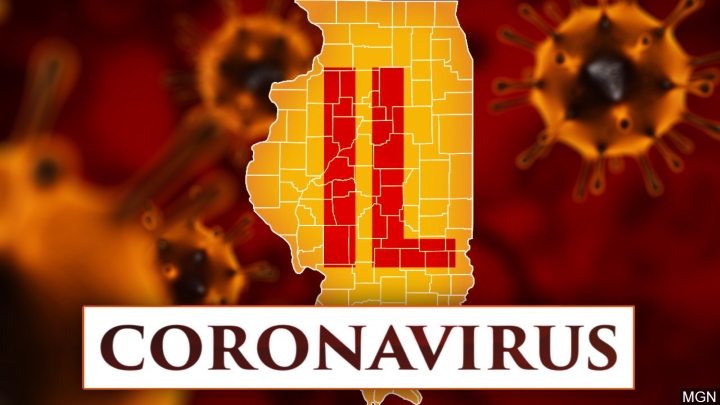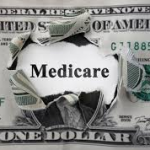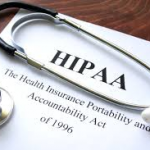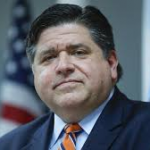
Under the Fifth Amendment to the U.S. Constitution, no person shall be “deprived of life, liberty, or property, without due process of law.” While the Fifth Amendment only applies to the federal government, the Fourteenth Amendment provides identical protections from unfair deprivation of those things by a state.
The Illinois Department of Financial and Professional Regulation (IDFPR) is a body of the state of Illinois. And your professional license is your property, likely one of your most valuable possessions insofar as your livelihood depends on it. This means that when the IDFPR initiates formal proceedings that could result in the denial, suspension, or revocation of your license, you are entitled to due process of law before they take such actions.
But due process in the context of administrative hearings like those before the IDFPR may not mean what you think it means. In fact, there is a good chance that you won’t receive the same due process protections that are your rights in a criminal prosecution or even in a civil lawsuit. This includes being fully informed of the allegations against you.
Due process involves many substantive and procedural aspects depending on the nature of the proceedings. One such element of due process is the right to know exactly why you are in the crosshairs of prosecutors, a plaintiff, or an administrative body. After all, you can’t properly mount a defense if you don’t know what you are defending yourself against.
In criminal cases, the Sixth Amendment gives defendants the right “to be informed of the nature and cause of the allegation” they face. The Federal Rules of Civil Procedure, as well as Illinois’ rules of civil procedure, contain similar requirements that a plaintiff’s complaint must provide sufficient detail to apprise the defendant of the claim for which they are being sued.
When a complaint fails to contain enough information to either support a claim or afford the defendant an ability to respond, the defendant can move to dismiss the complaint on that basis.
Licensees facing formal IDFPR disciplinary action also have the right to be adequately advised of the allegations against them and can move to dismiss a complaint if the Department falls short in this regard.
The problem is that the standards that apply in administrative proceedings are much more forgiving to those making the accusations, allowing them to pursue catastrophic sanctions against licensees with minimal detail as to why they are doing so.
Under the Illinois Administrative Procedure Act (APA), agencies like the IDFPR only need to provide the following in their formal complaints regarding the claims against a licensee:
- A statement of the legal authority and jurisdiction under which the proceeding is to be held;
- A reference to the particular sections of the substantive and procedural statutes and rules involved;
- Except where a more detailed statement is required by law, a short and plain statement of the matters asserted;
Courts have held that the charges filed before an administrative agency like IDFPR “need not be drawn with the precision required of pleadings in judicial actions. They only must be drawn sufficiently so that the alleged wrongdoer is reasonably apprised of the case against him to intelligently prepare his defense.” Siddiqui v. Department of Professional Regulation.
“In determining whether the respondent has adequate notice, a court may consider the discovery and other materials available to the respondent.” Secrest v. Department of Corrections. But this just leads to another due process problem inherent in IDFPR proceedings.
Limited Discovery Rights
The process of investigating, obtaining evidence, and eliciting testimony relevant to a case – whether it be a civil, criminal, or administrative proceeding like IDFPR disciplinary hearings – is known as “discovery.” It’s how the parties find out the facts, whether they help or hurt their respective cases. It is a fundamental aspect of fairness, and if a party is not permitted to fully develop the evidence necessary to support their case or challenge the evidence obtained by the other side, it is an inherently unfair process.
In formal IDFPR disciplinary proceedings, the licensee’s ability to pursue the discovery necessary to defend themselves is extremely limited. In fact, the extent of allowable discovery is determined by the very people who are prosecuting the case. Once the Department provides names of witnesses, including the name of any individual whose complaint may be at the heart of the proceedings, a respondent cannot take their depositions unless the Department’s attorney agrees. If the Department nixes a deposition request, that means the respondent will not be able to confront that witness, learn what his testimony will be, or attack the veracity of his testimony until the actual hearing. That is manifestly unjust and leaves a respondent and their attorney fighting with one arm tied behind their back.
Similarly, if there are witnesses that the licensee wishes to subpoena for testimony, those subpoenas have to be authorized and approved by the Department. Again, the very people seeking to deprive someone of their professional license can also deprive them of their ability to defend themselves.
With the deck so stacked against licensees, it is crucial that you retain an experienced IDFPR defense attorney to protect your rights, your license, and your livelihood if you find yourself in the Department’s sights.
Louis Fine: Chicago Professional License Defense Attorney
The moment you are contacted by IDFPR or learn that you are under investigation is the moment that you should contact me. I will immediately begin communicating with IDFPR prosecutors and work with you to develop the strategy best suited to achieving the goal of an efficient, cost-effective outcome that avoids any adverse action. Together, we will get you back to your clients and your career.
Please give me a call at (312) 236-2433 or fill out my online form to arrange for your free initial consultation. I look forward to meeting with you.

 With Illinois hospitals and healthcare workers overwhelmed on the front lines of the COVID-19 pandemic, and with freshly minted doctors and retired healthcare professionals being called into the fight, Gov. JB Pritzker signed an Executive Order providing them with immunity from civil liability for “rendering assistance” during the crisis.
With Illinois hospitals and healthcare workers overwhelmed on the front lines of the COVID-19 pandemic, and with freshly minted doctors and retired healthcare professionals being called into the fight, Gov. JB Pritzker signed an Executive Order providing them with immunity from civil liability for “rendering assistance” during the crisis. With the vast majority of Illinois residents working from home – or not working at all – because of the COVID-19 pandemic, the Illinois Department of Financial and Professional Regulation (IDFPR) has announced several variances and extensions that impact all 1.3 million Illinoisans with professional licenses. It is likely that these first
With the vast majority of Illinois residents working from home – or not working at all – because of the COVID-19 pandemic, the Illinois Department of Financial and Professional Regulation (IDFPR) has announced several variances and extensions that impact all 1.3 million Illinoisans with professional licenses. It is likely that these first  For every accomplished physician who dreams of retiring early, there is one who can’t imagine giving up the work that brings them so much personal and professional satisfaction and financial security. Every year, 20,000 American doctors turn 65, but only half of them retire by then. Thousands of physicians continue to practice well past their 70th, even 80th, birthdays. It is estimated that one in every eight practicing doctors in the U.S. is over 65, overseeing 50-70 million office visits and 11 million to 20 million hospitalizations each year.
For every accomplished physician who dreams of retiring early, there is one who can’t imagine giving up the work that brings them so much personal and professional satisfaction and financial security. Every year, 20,000 American doctors turn 65, but only half of them retire by then. Thousands of physicians continue to practice well past their 70th, even 80th, birthdays. It is estimated that one in every eight practicing doctors in the U.S. is over 65, overseeing 50-70 million office visits and 11 million to 20 million hospitalizations each year.

 ysicians and other eligible health care professionals, Medicare enrollment and billing privileges are invaluable and lucrative assets that can form a substantial portion of their revenues, allow them to treat more patients, and expand their career opportunities. Losing those privileges can be a catastrophic blow to a practice.
ysicians and other eligible health care professionals, Medicare enrollment and billing privileges are invaluable and lucrative assets that can form a substantial portion of their revenues, allow them to treat more patients, and expand their career opportunities. Losing those privileges can be a catastrophic blow to a practice.


